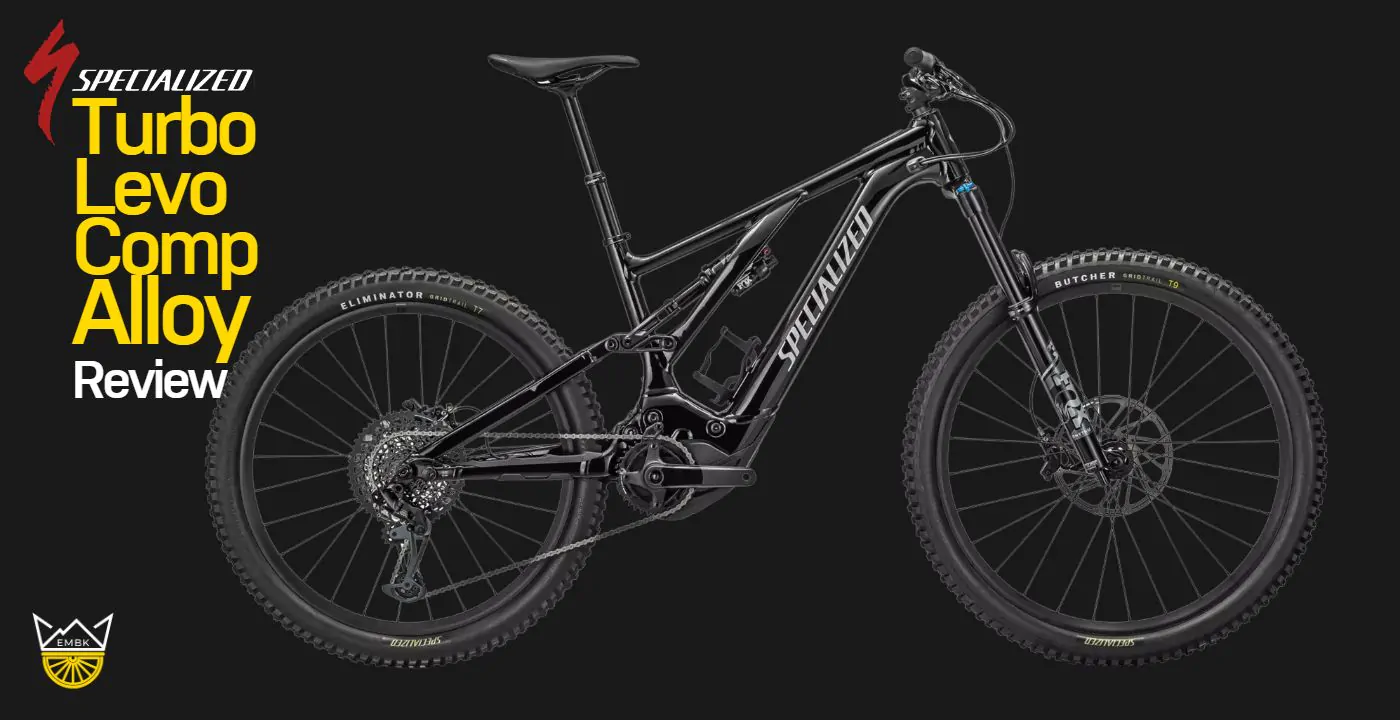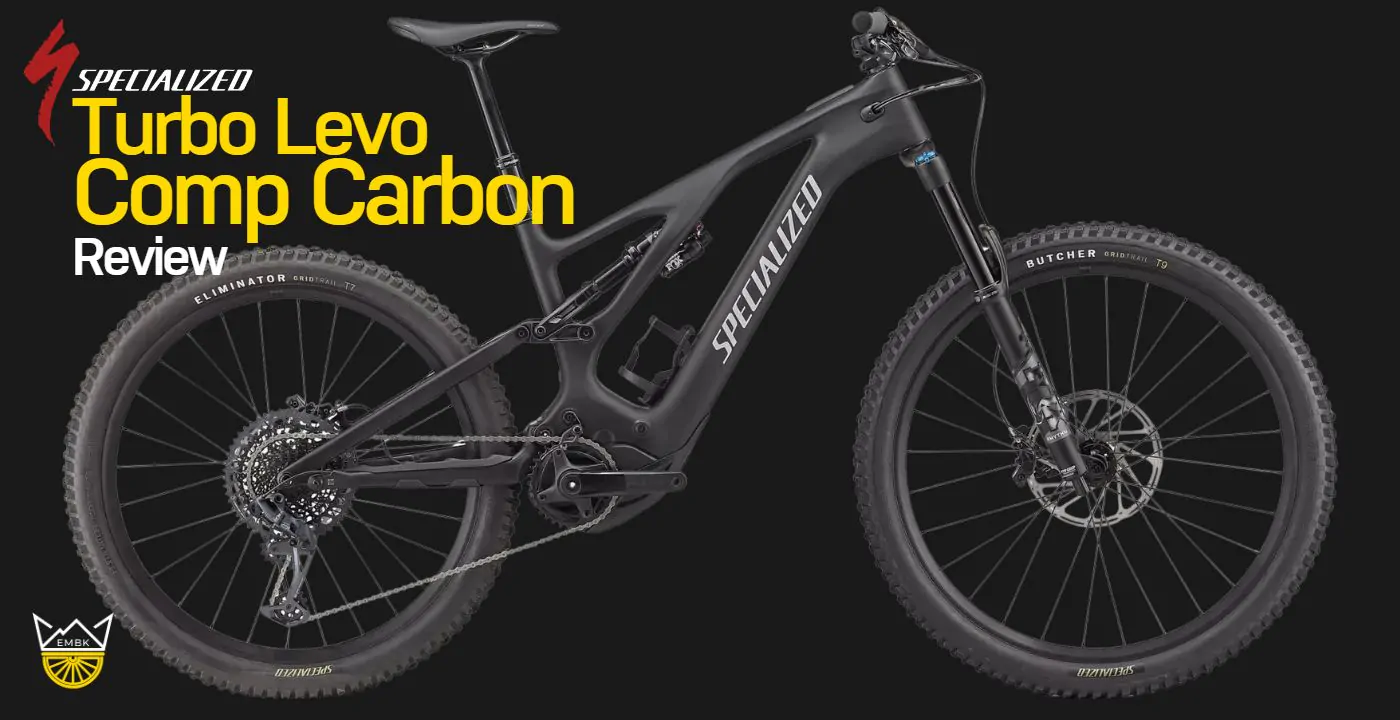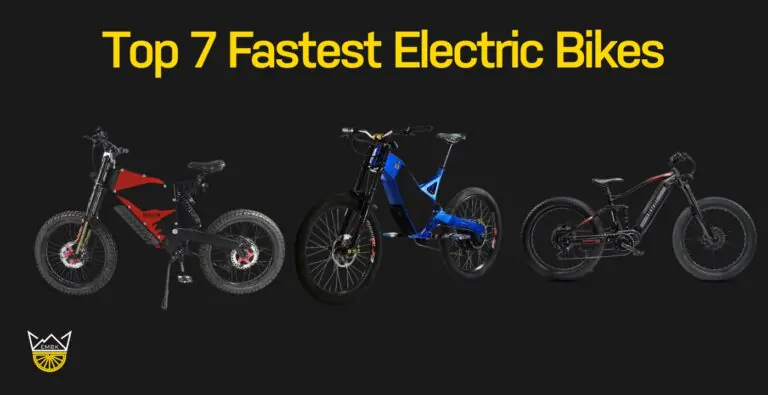Specialized has a brilliant reputation in the e-MTB industry for creating excellent rides. The e-MTBs pumped out by the brand are usually versatile, robust and include market-leading technology. As a result, Specialized’s new releases have developed a reputation for turning heads, with people now expecting that they’ll be at the forefront of developments within the industry.
But we know there’s nothing worse than parting with your hard-earned cash only to discover the new bike you’ve bought is a mess, especially if you were putting your faith into a company’s reputation alone. So, that’s why we do the reviews for you, putting in the miles so that you can purchase your e-MTBs with absolute, unshakeable confidence.
Specialized’s Turbo Levo Comp Carbon is one of the best out there on the market, but how does the series’ alloy sibling fare in comparison? In our Turbo Levo Comp Alloy review, we’ll strip the bike down, fling it around the trails, and judge whether it’s worth paying the extra premium for the carbon version, or whether the cheaper alloy will do the job.
Join us, then, as we get stuck into the Specialized Turbo Levo Alloy….
Our Verdict
Another winner from the crew at Specialized.
The Turbo Levo Comp Alloy has some excellent features – it’s powerful, has incredible handling and great adjustable geometry features. It also has a really chunky battery, which gives you a solid range out on the trails. Price wise, you really can’t complain, it offers aspects which you’d expect from an e-MTB costing $2,000 more.
However, there are compromises – the bike’s tyres, suspension and brakes could be better – but that price would creep up if they were.
Overall, we think it’s most definitely a winner.
Peaks:
- Price
- Motor power
- Battery range
- Adjustable geometry
Troughs:
- Brakes
- Tyres
- Suspension could be improved
- A little noisy
- Weight
Specialized Levo Alloy
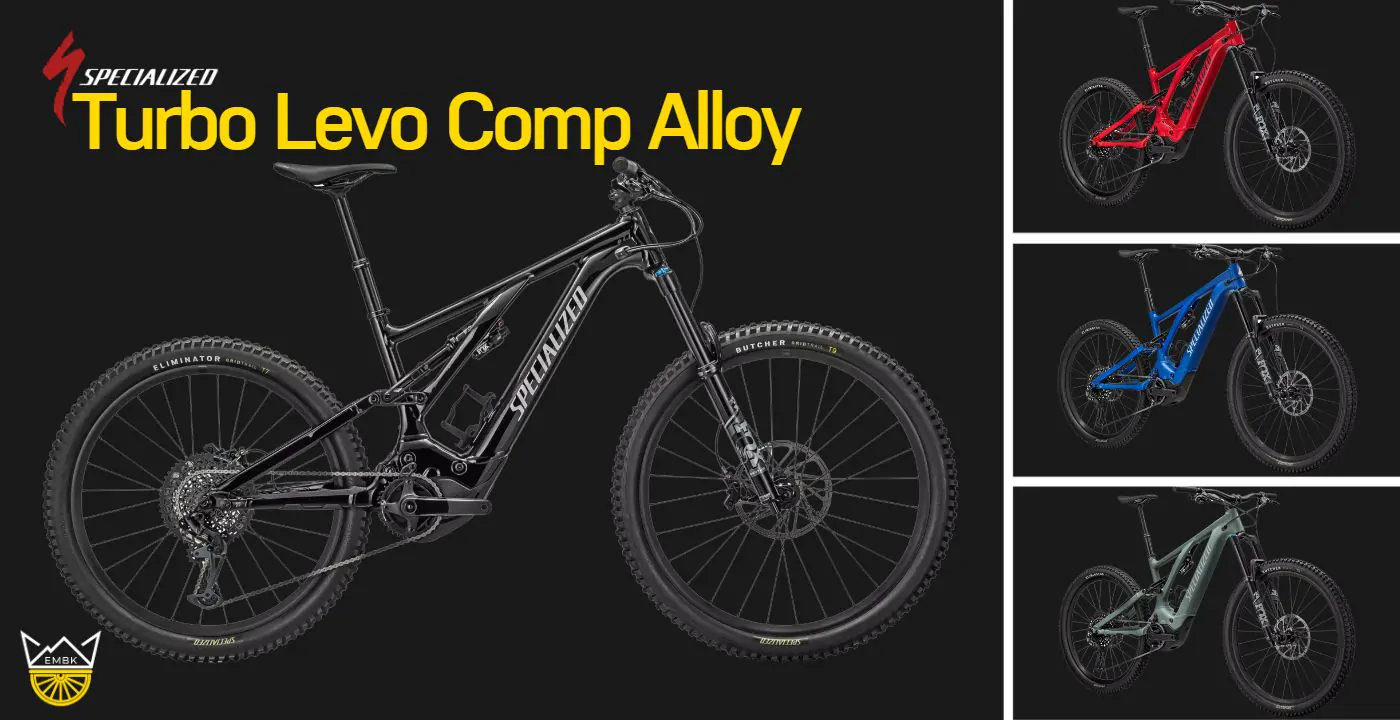
Price:$7,500
Weight/Frame
The bike has an alloy frame, and comes in at a respectable 24.12kg. That’s actually 1kg more than its carbon sibling, however this is to be expected with its heavier alloy composition.
Despite the different frame materials, both bikes offer six geometry settings, which is a great asset for the Turbo Levo Comp Alloy. It means you can tailor the bike to your needs or to the type of riding you will be doing that day, with a head tube angle that can be adjusted between 63 and 63.5 degrees and a bottom bracket which can be heightened by 7mm.
It’s a major positive for the Levo Alloy, enabling riders to create a custom set-up. The bike also has a generous cockpit, which gives you very good manoeuvrability and cornering control, while also planting you firmly on the bike and providing decent traction.
You feel very stable up there as you bomb down the trails and throw it through some twisty sections. The alloy frame also creates a robustness, meaning the bike can really take a beating and soak up pressure.
ℹ️ You can feel that extra weight in the gnarliest downhill sections and it takes quite a bit of body power to keep the bike in control. This is worth noting if you’re a little light in the arm strength department.
Battery
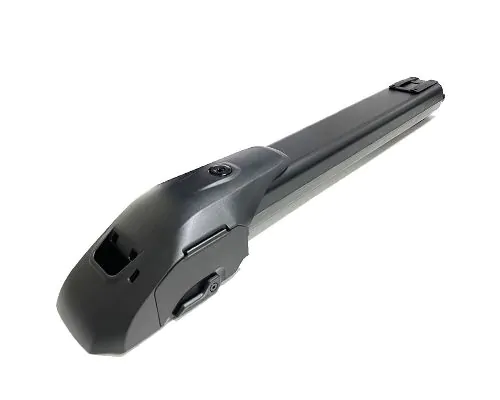
The Specialized Turbo Levo Comp Alloy comes with a chunky 700Wh battery, which is neatly integrated into the downtube.
It’s the same battery as the carbon version, the M3-700, which gives you a really solid range out there on the trails – we found that, on a flattish route, it gave us just short of 80km on our test rides. On a seriously chunky climbing day you won’t be able to eke out quite as much, but if you’re clever with your use of the bike’s electrical assistance, you’ll still manage some serious numbers.
Specialized’s claim is that you’ll be able to get up to 5 hours of riding out of that battery and we think that’s fairly true to form. The battery is also secured by a robust casing, so you have peace of mind that it can take most things you throw at it out there on the trails.
Motor
The Specialized Turbo Levo Alloy comes with the company’s 565Wh Turbo Full Power System, 2.2 Motor, which kicks out a monster 90Nm of torque. It’s a beast out on the trails and you can tackle the most challenging climbs with ease.
That extra weight keeps you planted and provides a lot of traction, but the monster power output gives you enough kick to not feel laggy in any way.
Instead, you bomb up the climbs in a breeze and, with three electrical assistance modes to choose from, you can tailor your power output to the needs of the trail, without burning through it all. The motor does kick out a little bit of noise, but that’s a minor fault in an otherwise spot-on motor.

Motor Display

The Turbo Levo Comp Alloy doesn’t have the nifty inbuilt display that the carbon version has. It’s unquestionably a downside, and means you haven’t got the accurate “battery percentage left” that you have with other motor displays. It comes with 10 “battery left” light bars, instead.
However, all isn’t lost; you can link the bike up to Specialized’s Mission Control App, which turns your smartphone into an onboard computer. If you go down the smartphone route, then you can get exact details of the battery percentage you have left and mapping tools, among many other features.
Suspension
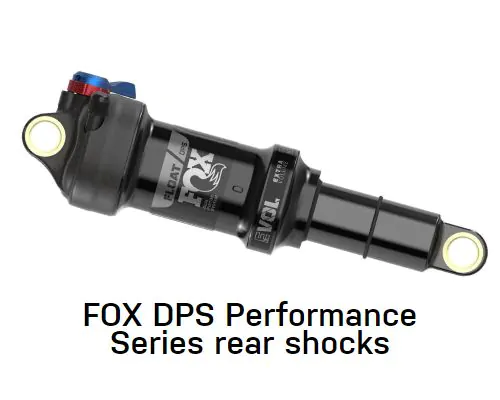
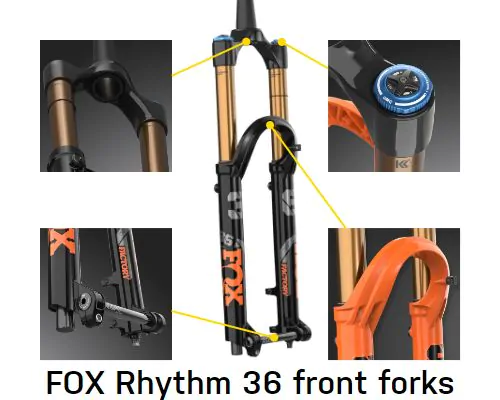
The Turbo Levo Comp Alloy comes with 160mm travel at the front and 150mm travel at the rear. It’s set up with FOX DPS Performance Series rear shocks and Fox Rhythm 36 front forks.
The fork setup is exactly the same as the carbon version, which can take a beating out there on the trails, and take on some serious descents. It’s also got a nice, playful feel, so you can weave through those complex twisty sections, too.
It’s worth paying attention to Specialized’s setup guide for the suspension; if you’re a heavier rider, then you may find yourself bottoming out on some big drops if you haven’t got your setup properly dialled in.
The suspension pairing, combined with the bike’s geometry, creates a great partner out there on the trails.
Wheels/Tyres
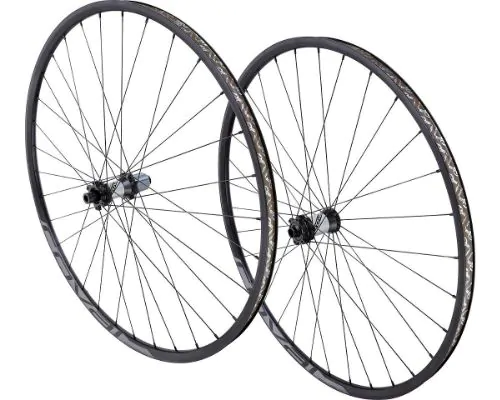
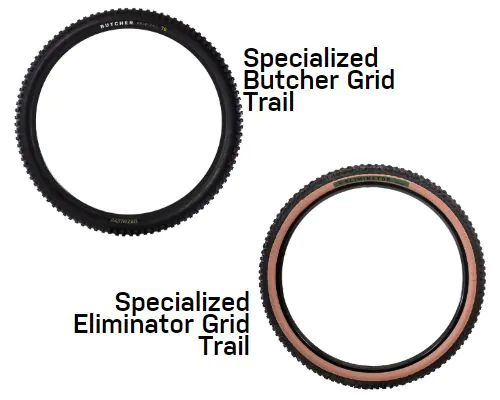
The Turbo Levo Comp Alloy comes with the same mullet setup as the carbon version, with a mixed wheel setup. It has a 27.5in wheel at the rear end and a 29in wheel at the front.
The mixed wheel size has many advantages, with the larger front wheel planting you on the trail and creating fantastic traction, which helps you feel strong on the ascents and helps you get up and over obstacles with ease.
Meanwhile, the back wheel keeps that fun edge, allowing you to carve around tricky sections and maximise manoeuvrability. There are a few issues with the tyres, though. The Turbo Levo Comp Alloy is fitted with Butcher GRID TRAIL at the front and Eliminator GRID TRAIL at the rear.
We found these weren’t the most forgiving out on the trails and if you reduced the tyre pressure to feel a little more comfortable, then you’d end up getting quite a few punctures. Not ideal…
Brakes
The Turbo Levo Comp Alloy comes with SRAM Code R, 4-piston caliper hydraulic disc brakes at both the front and the rear. It’s the same setup as the carbon version of the bike, but we think Specialized could offer more in this area.
There are better options on the market, and with so many strong features on the bike – particularly the powerful motor and manoeuvrability – you would want the brake set up to complement that. You get a decent amount of stopping power with the SRAM Code Rs, but there could be more.
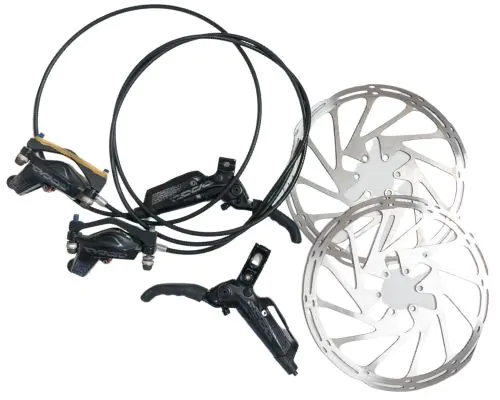
Drivetrain
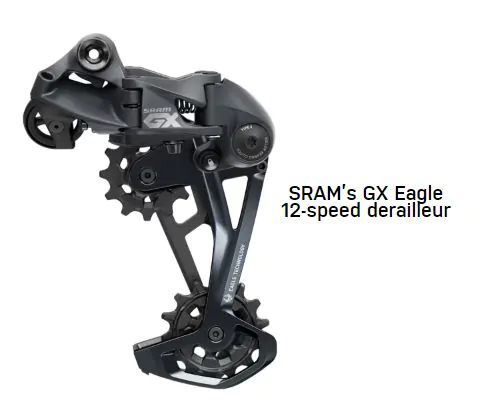
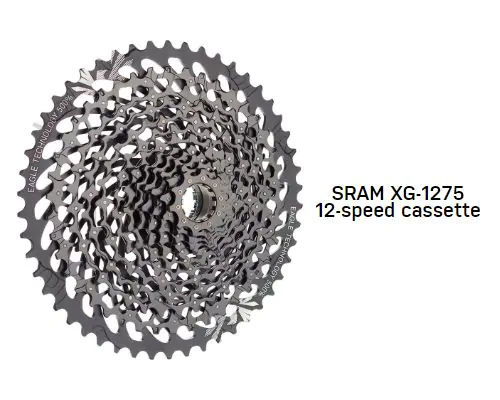
The Turbo Levo Comp Alloy comes with SRAM’s GX Eagle 12-speed derailleur and the SRAM XG-1275, 12-speed cassette.
Price: $7,500
We think this is a very reasonable price for such an accomplished e-MTB. You have an incredibly powerful motor, fantastic manoeuvrability, chunky battery and sleek design, which can take on most things you throw at it. It also comes in more than $1,700 cheaper than the carbon version, which is a decent price gap, particularly when you consider how many components are the same.
Specialized Turbo Levo Comp Alloy Facts & Figures
Size Configurations
| GEOMETRY | ||||||
|---|---|---|---|---|---|---|
| S1 | S2 | S3 | S4 | S5 | S6 | |
| Crank Length | 160mm | 160mm | 160mm | 160mm | 160mm | 160mm |
| Handlebar Width | 780mm | 780mm | 780mm | 780mm | 780mm | 780mm |
| Stem Length | 40mm | 40mm | 50mm | 50mm | 50mm | 50mm |
| Saddle Width | 155mm | 155mm | 143mm | 143mm | 143mm | 143mm |
| Seatpost Length | 100mm | 125mm | 150mm | 170mm | 170mm | 190mm |
| Stack | 605mm | 617mm | 626mm | 635mm | 644mm | 653mm |
| Reach | 412mm | 432mm | 452mm | 477mm | 502mm | 532mm |
| Headtube Length | 105mm | 105mm | 115mm | 125mm | 135mm | 145mm |
| Headtube Angle | 64.5° | 64.5° | 64.5° | 64.5° | 64.5° | 64.5° |
| BB Height | 352mm | 350mm | 350mm | 350mm | 350mm | 350mm |
| BB Drop | 25mm | 27mm | 27mm | 27mm | 27mm | 27mm |
| Trail | 130mm | 130mm | 130mm | 130mm | 130mm | 130mm |
| Fork Length (full) | 557mm | 567mm | 567mm | 567mm | 567mm | 567mm |
| Fork Rake/Offset | 44mm | 44mm | 44mm | 44mm | 44mm | 44mm |
| Front Center | 738mm | 760mm | 784mm | 814mm | 843mm | 878mm |
| Chainstay Length | 442mm | 442mm | 442mm | 442mm | 442mm | 442mm |
| Wheelbase | 1179mm | 1200mm | 1225mm | 1255mm | 1284mm | 1318mm |
| Bike Standover Height | 752mm | 776mm | 783mm | 787mm | 788mm | 790mm |
| Seat Tube Length | 380mm | 390mm | 405mm | 425mm | 445mm | 465mm |
| Seat Tube Angle | 78° | 77.2° | 76.7° | 76.2° | 76.2° | 76.2° |
| Max Seatpost Insertion | 210mm | 220mm | 240mm | 255mm | 275mm | 295mm |
| Min Seatpost Insertion | 80mm | 80mm | 80mm | 80mm | 80mm | 80mm |
Full Specs
| COCKPIT | |
|---|---|
| Stem | Alloy Trail Stem, 35mm bar bore |
| Handlebars | Alloy, 35mm diameter, 780mm width, 8-degree backsweep, 6-degree upsweep |
| Tape | Specialized Trail Grips |
| Saddle | Bridge Comp, Hollow Cr-mo rails, 155/143mm |
| SeatPost | X-Fusion Manic, infinite adjustable, two-bolt head, bottom mount cable routing, remote SLR LE lever, 34.9, S1: 100mm, S2: 125mm, S3: 150mm, S4/S5: 175mm, S6: 190mm |
| DRIVETRAIN | |
|---|---|
| Rear Derailleur | SRAM GX Eagle, 12-speed |
| Shift Levers | SRAM GX, trigger, 12-speed |
| Cassette | Sram XG-1275, 12-speed, 10-52t |
| Chain | SRAM NX Eagle, 12-speed |
| Crankset | Praxis forged M30, custom offset, 160mm |
| Chainrings | SRAM X-Sync Eagle, 104 BCD, 32T, steel |
| WHEELS | |
|---|---|
| Rims | Specialized 29, hookless alloy, 30mm inner width, tubeless ready |
| Front Hub | Alloy, sealed cartridge bearings, 15x110mm thru-axle, 28h |
| Spokes | DT Swiss Industry |
| Inner Tubes | Standard, Presta Valve |
| Rear Hub | Alloy, sealed cartridge bearings, 148mmx12mm thru-axle, 28h |
| Front Tire | Butcher, GRID TRAIL casing, GRIPTON® T9 compound, 2Bliss Ready, 29×2.6″ |
| Rear Tire | Eliminator, GRID TRAIL casing, GRIPTON® T7 compound, 2Bliss Ready, 27.5×2.6″ |
| FRAMESET | |
|---|---|
| Seat Binder | Alloy, 38.6mm |
| Frame | Specialized M5 premium alloy, headset adjust, BB height adjust, S-Sizing, internal cable routing, 150mm travel, 148mm spacing |
| Fork | Fox Rhythm 36, S1: 150mm travel, S2-S6: 160mm travel |
| E-BIKE | |
|---|---|
| Motor | Specialized Turbo Full Power System 2.2 Motor |
| UI/Remote | Specialized TCU, 10-LED State of charge, 3-LED Ride Mode display, ANT+/Bluetooth®, w/Handlebar remote |
| Charger | Custom charger, 42V4A w/ Rosenberger plug, 100-240V |
| Battery | Specialized M3-700, Integrated battery, 700Wh |
| Wiring Harness | Custom Specialized wiring harness |
| SUSPENSION | |
|---|---|
| Rear Shock | S1: FOX DPS Performance Series, 3-position lever, rebound adjust, 52.5x210mm, S2-S6: FOX FLOAT X Performance, LSR, 2-position lever, 55x210mm |
| BRAKES | |
|---|---|
| Front Brake | SRAM Code R, 4-piston caliper, hydraulic disc, S1-S3: 200mm, S4-S6: 220mm |
| Rear Brake | SRAM Code R, 4-piston caliper, hydraulic disc, 200mm |
* Specifications are subject to change without notice
How Does it Compare?
The Turbo Levo Comp Alloy certainly stands out in the field, but there are other bikes which give it a run for its money. Another serious contender is the Giant Reign E+2, which comes in $1,000 cheaper than the Turbo Levo Comp Alloy.

But what does it have to offer?
The Giant weighs less than the Turbo Levo Comp Alloy, but has a less powerful motor (by 5Nm of torque). A big plus for the Giant is the chunkier battery – 800Wh over the Turbo Levo Comp Alloy’s 700Wh battery – as well as the fact that it has 100mm more of travel at both the front and the back.
We think it’s a really good option and is actually slightly better than the Turbo Levo Comp Alloy in many areas. But what else is out there?

The Scott Ransom eRide 920 is another comparable ride out there, coming in around $1,000 cheaper than Specialized’s offering.
It weighs more than the Levo Comp Alloy (by 0.5kg), has a smaller battery (by 75Wh), has a smaller motor (by 5Nm), but has greater travel at both the front and the rear.
The Scott doesn’t have the same natural ride feel as the Turbo Levo Comp Alloy and certainly doesn’t have the manoeuvrability. We think the Turbo Levo Comp Alloy is a better bet in this matchup.
Final Thoughts
We’re big fans of the Turbo Levo Comp Alloy. There are few bikes at this kind of price which deliver so much. It’s a fun, powerful and versatile e-MTB, and one that serves as a reliable companion out on the trails.
The Levo Comp Alloy has features which you’d expect from a seriously expensive and top range e-MTB, yet you’re paying a fraction of the price.
And listen, we know it doesn’t have a carbon frame, and with that comes extra weight, but if you are willing to put in some strength work, then you’ll be rewarded with a tremendous e-MTB, which punches well above its weight.
It may not be perfect; there are issues with the tyres, and the suspension and brakes could both be better, but then, for those improvements you might end up paying quite a bit more. Overall, it’s a decent package and at that price, we think it’s a winner.
Now get out and give it a try yourself!
If you enjoyed this review then make sure to check out our review of Specialized’s Turbo Levo Comp Carbon.


